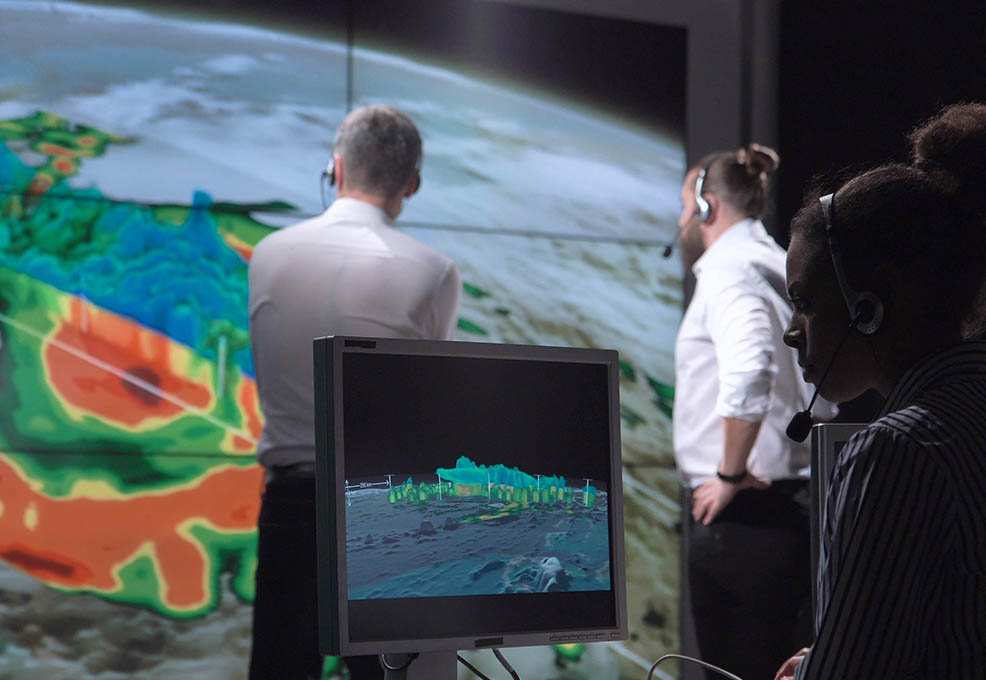Versatile Remote Sensing and Spatial Analysis for Hazard Investigation

Author(s)
Yen-Hung ChenBiography
Dr. Yen-Hung Chen received his Ph.D. degree in nuclear science in 1999 from National Tsinghua University, Taiwan. He is currently a professor with the Department of Optics and Photonics, National Central University, Taiwan. His research interests are in the areas of nonlinear optics, integrated quantum photonics, and integrated multifunction lasers.
Academy/University/Organization
National Central University-
TAGS
-
Share this article
You are free to share this article under the Attribution 4.0 International license
- ENGINEERING & TECHNOLOGIES
- Text & Image
- December 10,2021
We are on an exciting new page in technological history in the transition from the digital information (electronics) era to Industry 4.0, where many new technologies including quantum technology have been developing and are highly anticipated to address those big issues we are facing but which cannot be efficiently solved with currently available technologies.
Quantum computers enable the solving of complex and difficult problems that cannot be solved by a conventional (classical) computer at a reasonable time scale. Among the quantum computing approaches, photonic qubits can work at room temperature and feature high integrability, high scalability, easy manipulation, and high compatibility with fiber-optical networks, leading the photonic solution to one of the most promising technologies for realizing chip-based quantum computers.
Supported by the MOST, Taiwan, the research team led by Prof. Yen-Hung Chen has demonstrated several key technologies in photonic quantum computing including a 4 photonic qubit source, a two-qubit (CNOT) logic gate circuit, and a high-efficiency single-photon avalanche diode. The team aims to realize an optical quantum computing chip capable of performing the fault-tolerant Shor's algorithm in 2023, which is expected to be an important milestone in Taiwan’s silicon-based chip-level quantum computer technology.
If the semiconductor IC chips are one of the most marvelous masterpieces of human science and technology brought about by the first quantum revolution, then the quantum photonic computing chip will be an excellent candidate to continue the glory of Taiwan as “the kingdom of chips” in the second wave quantum revolution taking place at this moment.
Integrated circuit (IC) chips, widely recognized as tiny, light, and thin elements capable of processing an amazing range of miscellaneous calculation tasks to operate today’s ubiquitous electronic products such as cell phones, laptops, digital cameras, digital watches, etc., have become a classic synonym of the high-tech semiconductor industry. No doubt, the IC technology has written a glorious page in the history of human science and technology, leading to a great change in our daily life towards an ever more convenient and efficient lifestyle. Furthermore, we are now on an exciting new page in technological history in the transition from the digital information era (the so-called third industrial revolution) to Industry 4.0 where many new technologies including green/clean energy, artificial intelligence, and quantum computing have been developing and are highly anticipated to address those big issues we are facing but which cannot be efficiently solved with currently available technologies, such as the efficient process of the ever-growing astronomically big data (it is estimated the globally generated digital data has exceeded the huge amount of 44 ZB!) and the extinction of fatal disasters, diseases, and pandemics caused by the global environmental deterioration mainly due to the overexploitation of natural resources during our pursuit of civilization.
Quantum computers, working based on the peculiar but marvelous superposition and entanglement phenomena, show powerful parallel processing capabilities, enabling the solving of complex and difficult problems that cannot be solved by conventional (classical) computers, and even supercomputers, at a reasonable time scale. Quantum advantage (or quantum supremacy) has been demonstrated recently in 2019 and 2020 by Google and a China research team. For example, the quantum computer "Jiuzhang" has shown incredible power in processing specific hard-problems (here, Gaussian Bose sampling) with a speed estimated to be 100 trillion times faster than even using today’s fastest supercomputer, "Fugaku"! Such an overwhelmingly powerful computing ability is expected to greatly shorten the research and development time course of new drugs and new materials, to largely improve the prediction accuracy of the crises and risks arising from energy, finance, and climate issues, to enable the construction of unconditionally secure communication systems, to efficiently address issues that require large-scale and highly complicated and heavy calculations to find optimized solutions for management in complex circumstances like those encountered in logistics networks and national security, and to solve abstruse problems/puzzles in fundamental research fields such as astronomy, earth science, and high energy physics.
Although not yet mature, quantum computing technologies, including superconducting circuits (representative companies: IBM, Google), ion traps (IonQ, Honeywell), electron spin (Intel), and photons (PsiQuantum, Xanadu) have progressed rapidly in recent years. However, for leading quantum bit (qubit) technologies like superconducting circuits and ion traps, their operations need to be conducted in either vacuum or cryogenic environments, which largely limit their integrability and scalability for developing a system on a chip favorable for practical and versatile applications. In contrast, photonic qubits can work at room temperature without the need for vacuum facility and further feature high integrability, high scalability, easy manipulation, and high compatibility with fiber-optical networks, leading the photonic solution to one of the most promising technologies for realizing chip-based quantum computers.

Figure 1. Photonic Qubit Chip developed by the research team "Scalable Quantum Photonic Chips on Silicon"
In Dec. 2018, a research team led by Prof. Yen-Hung Chen and composed of professors/experts from National Central University, National Tsinghua University, National Yang Ming Chiao Tung University, and National Chung Cheng University was formed under a project entitled "Scalable Quantum Photonic Chips on Silicon" which is funded by the Ministry of Science and Technology (MOST), Taiwan. This team has been the main force engaged in optical quantum computing technology in Taiwan. Currently, the team has developed and demonstrated a 4 photonic qubit source, a two-qubit (CNOT) logic gate circuit, and a high-efficiency (>40 %) single-photon avalanche diode (Figure 1). Importantly, all three core technologies can be realized at the chip scale and can be operated at room temperature. The team aims to realize an optical quantum computing chip capable of performing fault-tolerant Shor's algorithm in 2023, which is expected to be an important milestone in Taiwan’s silicon-based chip-level quantum computer technology.

Figure 2. Schematic of an Integrated Quantum Photonic Computing Chip
The quantum photonic chip technology developed by our team has attracted much attention and led to collaborations with several world-leading semiconductor companies and renowned international research groups (see, e.g., results in Science 361, 1104-1108 (2018)). Besides, the brilliant research results from our team members have also won the MOST "Future Technology Award" for three consecutive years (2019-2021). If the semiconductor IC chips are one of the most marvelous masterpieces of human science and technology brought about by the first quantum revolution which commenced early last century, then the quantum photonic computing chip (based on the “Integrated Photonic Circuits (IPC)”) will be an excellent candidate to continue the glory of Taiwan as “the kingdom of chips” in the second wave quantum revolution taking place at this moment, and will drive Taiwan's next generation of technological and economic growth (Figure 2).
STAY CONNECTED. SUBSCRIBE TO OUR NEWSLETTER.
Add your information below to receive daily updates.




